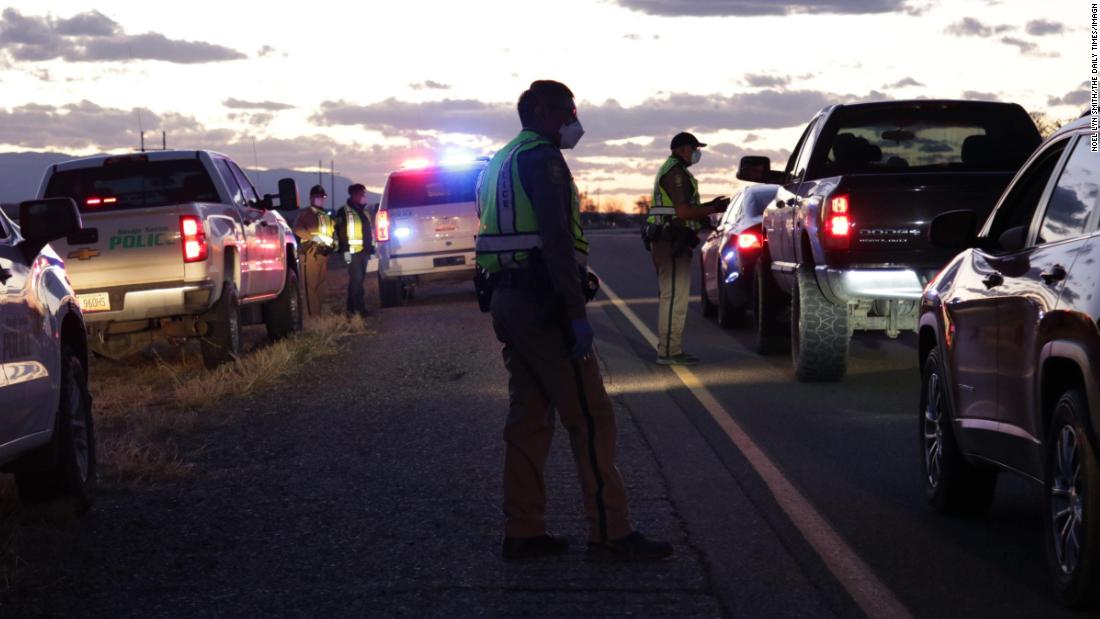[ad_1]
“You may be young and in good health, but this virus can infect anyone,” Nez said. “This is not to be taken lightly.”
A public health order banning members of the Navajo Nation from leaving their homes except for emergencies or to go to work as essential employees went into effect at 8 p.m. on Friday and will continue until 5 a.m. Monday.
The weekend order is in addition to a curfew that already mandates that members stay in their homes from 8 p.m. until 5 a.m. daily.
Those who need to go to work must have official identification or a letter on company letterhead with employer contact information for verification in order to travel, a public health order issued by the Navajo Nation said.
No visitors
“No offense to tourists and visitors, we are doing this for the health and protection of everyone,” Lizer said in a release.
“To be very clear, the restrictions do not apply to truck drivers and essential businesses that deliver essential products to the Navajo Nation,” Lizer said.
A need for supplies
The Navajo Nation has been receiving essential deliveries from the Arizona National Guard to treat those already infected and to continue to test its population.
Arizona Gov. Doug Ducey said in a tweet that he was in contact with the tribe about its needs.
“Our tribal communities remain top of mind: I’ve been in touch with Navajo President Nez & Vice President Lizer about the need for supplies, personnel and ventilators,” Ducey said in a tweet. “Arizona is committed to assisting ALL our tribes as they fight.”
On Saturday, Nez and Lizer said in a news release that a coronavirus test that can provide results in less than 15 minutes will soon be available at Navajo area Indian Health Service facilities and tribal operated health care centers.
Tests currently take two to four days to process, Nez and Lizer said in the news release.
“Quicker test results will likely result in even higher numbers of positive cases, but it will help to identify those who have the virus and begin to mitigate the cases much quicker,” Nez said. “We must do better.”
Other tribes are dealing with the pandemic
The Navajo Nation is not the only tribe in the United States dealing with coronavirus.
All business operations of the tribe have been suspended until May 1, including all 10 gaming and hospitality destinations, cultural museums and retail operations.
The nation declared a state of emergency on March 16 and suspended operations at all tribally owned casinos, hotels, and museums.
While no curfews or stay at home orders are in place, all hotels and casinos were closed indefinitely on March 16.
The tribe continues to work with its supply chains in order to ensure the flow of personal protective equipment for healthcare workers and its pharmacy has begun making its own hand sanitizer to try to meet demand, Humensky said.
CNN’s Dan Shepherd contributed to this report.
[ad_2]
Source link


